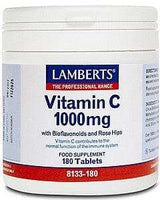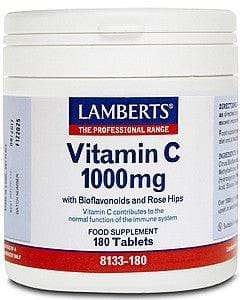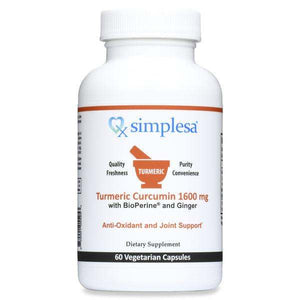Average 5K Time: Tips on How to Improve

Related products
Have you ever crossed the finish line of a 5K race wondering how to take a few seconds or even minutes off your time? Do you find yourself asking, "What’s an average 5K time for someone like me?" The 5K race is one of the most popular distances for both new and experienced runners. At 3.1 miles, it’s a manageable distance that offers a perfect blend of endurance and speed, making it an ideal challenge for anyone aiming to improve their running performance. Whether you're looking to complete your first 5K or striving to set a personal record, improving your 5K time requires dedication, the right training techniques, and a strategic approach.
This article will explore what an "average 5K time" looks like, the factors that impact 5K performance, and most importantly, provide actionable tips to help you improve your time. By focusing on training, nutrition, mental strength, and recovery, you will cross the finish line faster and more confidently.
What Is an Average 5K Time?
The 5K time differs according to the different ages and fitness levels as well, experience. Here are some general benchmarks:
Beginners:
If you are new to 5K running, your finish time ranges between 30-40 minutes and typically in an average pace around the range of 9-12 min per mile.
Intermediate runners:
More experienced runners may complete a 5K in 20 to 30 minutes, which means running at a speed of about 6 to 9 minutes per mile.
Experienced runners:
Competitive athletes or experienced runners who typically run under 20 minutes for a 5K, averaging less than 6 miles per mile.
Naturally, these times are just general ideas. However, depending on some factors like how long have you been running, how intense has your training program coupled with fitness level will determine what time to expect for a 5K race.
What are the Factors That Affect The 5K Performance?
I will start by talking very briefly about 5K times before any of the improvement tips. The following factors determine that one side of the ledger goes up or down.
Age:
Younger runners (in their 20s and early 30s) usually run faster than older runners, as is the case with most physical activities. But age should not be considered an obstacle, many runners at a more advanced stage of life post fast times achieved through consistent training.
Fitness Level:
Your average cardiovascular health, muscle strength and endurance directly reflect how fast you potentially can run a 5K so with more training your fitness will get better which in the end means that you will complete it faster.
Experience:
Runners who have been running consistently for a while will run faster than those just starting out. The thing I needed to heal is not a broken bone, but rather learn how to run more efficiently and technically properly which comes with time.
Terrain:
The surface and the elevation can make a big difference in your timing. Race on a flat, paved surface. Flat Roads - Pavement makes for faster times; hilly trails and uneven surfaces will slow you down.
Weather Conditions:
Hot (as we know it), cold or rainy weather can definitely slow you down. More in tune with quantum physics, but equally alarming is that extreme conditions also mean there can be substantial energy demands for runners just to keep their speed up and this can certainly influence overall performance.
Running Form and Technique:
A more efficient way of doing everything in your life makes a big difference, from brushing teeth to eating, how much faster do you think running could change with the right run. But having incorrect form can slow you down and even result in injury, instead of giving you the efficiency boost those proper biomechanics has to offer.
Mental Strength:
The psychological aspect of running is just as important as the physical. The ability to push through discomfort and maintain focus can give you the mental edge needed to shave seconds off your 5K time.
Now that some of the determinants are out, let us walk you through top tips to do better at your 5K.
What are Some of the Tips to Improve Your 5K Time?
1. Incorporate Interval Training
The trick to increasing your 5K time is ideally through interval training (HIIT). HIIT is short for High Intensity Interval Training, and it means running all out (and I mean as fast you can) alternated by periods of slower, recovery running or just plain walking. The idea is to get your body running a little faster than you usually do for just enough time, until it eventually improves both speed and cardiovascular health.
A workout example: 10 minute warm up and then sprint (as fast as possible) for 1 minutes, walk at an easy speed for 2 minutes. Do that 6-8 times then use a light jog for 10 mins as heat down.
The research suggests HIIT can increase aerobic and anaerobic capacity, both key for improving performance at short distances like the 5K.
2. Improve Your Running Form
Proper form when running will make you faster and save energy. Some of the simple tips include following:
Position: Stand up straight and keep your shoulders down. Do not round your back, which will restrict breathing and efficiency.
Swing arms: arm should naturally swing at the side with an angle of 90 degrees from elbow, make sure you don’t cross your arms in front of your body but send them simply straight forward and back.
Foot Strike: Land midfoot; have your foot land in the middle of transition and not way out front. That will help you not ruin the effect and keep moving.
Doing it well keeps you from getting hurt and could get your 5K time down instead of adding minutes on to it.
3. Add Tempo Runs to Your Training Plan
Another way build speed and endurance are doing threshold runs or as they are often called, tempo runs. What is threshold runs: These thresholds will begin to be “comfortably hard” faster than your easy run speed but slower than a sprint Wikipedia the concept is to run comfortably hard for a long time so that your body gets used to running faster over more extended periods of time.
Example Workout: Warm up then run at your threshold pace (basically 85–90% of maximum effort) for 15 –20 mins, followed by a cool down.
Tempo runs help you build your lactate threshold, which is the point at which lactic acid starts to accumulate in the muscles leading to fatigue. While you maintain higher levels of this threshold it means that you can drive faster before getting tired.
4. Incorporate Strength Training
For all you runners, strength training is often pushed to the side, but it can be a game changer when you are looking for improvements in your 5k time. Having stronger muscles equals a better running economy, this in turn leads to faster times. Work on building strength in all the muscles that propel you forward as a runner quad, posterior thigh muscles.
Exercise Recommendations: Squats, lunges, deadlifts, planks and hip bridges are all great exercises to strengthening the muscle groups used in running.
Focus on 2-3 times per week for strength training. It may not even require hours in the weight room to do some lifting just 20-30 minutes of targeted strength work.
5. Focus on Pacing
A 5K is a distance that needs to be run at an even pace; many times, runners will go out too hard, only to crash and burn in the last mile. During your training runs, practice pacing using a GPS watch or running app to time yourself. Finally try to not go too fast, run your race at a consistent speed or even negative split (run the second half of your race faster than the first).
Tip: utilize the inherent excitement on race day to your advantage-but do not sprint out of the gate! So instead, try to build up from a pace and increase as you start warming up.
6. Optimize Your Nutrition
Performance nutrition is absolutely vital. In order to have a great 5K you need to properly fuel your body. Eat a well-balanced meal including whole grains, lean proteins, healthy fats and all the fruit and veggies you alone can eat. When it comes to carbohydrates, runners need more because they are the energy source needed for endurance.
Pre-Run Fueling: Before your runs, eat a light meal or snack that contains easily digestible carbs and a small amount of protein. Some good pre-run options include a banana with peanut butter, oatmeal with fruit, or a slice of toast with honey.
Hydration: Staying hydrated is equally important. Drink water throughout the day, and make sure you're hydrated before, during, and after your run.
7. Prioritize Recovery
Your body needs to recover and get used to the latest stressful situation imposed on it! Deprive your body of rest and you increase your chances for injury, burnout, and sub optimal performances. Factor in rest days on your training schedule and do active recovery like yoga or swimming or a very easy walk.
Sleep: One of the most important factors in recovery and performance. Your body needs time to repair, and rebuild-restoration is accomplished during your 7-9 hours of quality sleep per night.
8. Run More Frequently
If you are already those 2-3 times a week, consider bumping it up to the higher end of that range or even into 4–5 days per week. More miles into more frequently means that you get stronger at running (muscle memory, after all), which is helpful on both fronts. But be careful, you should not increase your mileage too fast making a danger for injury. Use the 10% rule – no more than a 10% increase in your total weekly mileage from week to week. Results cross origin-area
9. Use Race-Specific Workouts
If you want to get better at running 5K's, then you need to train for 5K racing. Along with interval training and tempo runs, include race specific workouts that mimic the pace and intensity of a 5K (i.e. on an actual track doing regular small break sprints over similar distances to those seen in these races.) Include some short fast runs just above your ran goal-race-pace threshold will help get your body acclimated near this faster running level.
Workout: Run 3 x 1 mile at your goal 5K pace with 3-4 minutes of rest between intervals. This will help you build the speed and stamina needed to maintain.
Expert Advice on Increasing Your 5K Time
Many running experts emphasise that improving your 5K performance requires a well-rounded strategy. "Adding variety to your training regimen, like strength training and interval workouts, can dramatically enhance your running efficiency," says sports scientist Dr. John Smith. He advises runners to do a variety of exercises that test their physical strength and cardiovascular system in addition to concentrating on distance.
Sarah Johnson, a physical therapist, continues, "A lot of runners don't realise how important it is to heal and avoid injuries. A thorough training program should incorporate cross-training exercises, mobility exercises, and enough recovery. She emphasises that the best way to avoid injuries that might impede your training progress is to pay attention to your body.
"What you eat before and after your runs can significantly impact your performance," adds nutritionist Mark Lee. To make sure they have adequate energy stores, he advises runners to closely monitor their carbohydrate consumption, particularly in the days before a marathon. He also emphasises the significance of post-run diet for recuperation, suggesting a mix of carbs and proteins to promote muscle growth.
Dr. Emily Chen, a psychologist, emphasizes the mental component of running: "As important as physical training is, so is developing a strong mental approach. On race day, visualization methods can help you feel more confident and less anxious by helping you see yourself running strong and reaching the finish line. In order to increase their sense of success along the way, she also advises runners to create realistic targets and divide them into achievable milestones.
Lastly, sports coach David Lee advises keeping a close eye on your growth. "You can find patterns in your performance by keeping a training record, which can be quite helpful when making the required corrections. To determine what works best for you, evaluate your heart rate, pace, and feelings during each run.
People Also Ask
How long does it take to train for a 5K?
Training for a 5K often takes around 6 to 8 weeks for a beginner. This time frame allows for gradual improvement in physical stamina and pace without giving way to exhaustion, wear and tear of the muscles. It is important to practice consistent running and cross-training for better running outcomes.
What is the average pace for a 5K run?
The average pace for a 5K run is typically around 10-12 minutes per mile. It also depends on the fitness level of a particular individual. Beginners may run at a slower pace initially while experienced runners challenge themselves for faster times to run the miles.
Conclusion
The 5K race is one of the most popular distances for both new and experienced runners. At 3.1 miles, it’s a manageable distance that offers a perfect blend of endurance and speed, making it an ideal challenge for anyone aiming to improve their running performance. Beginners at 5K finish time ranges between 30-40 minutes and typically in an average pace around the range of 9-12 min per mile. More experienced runners may complete a 5K in 20 to 30 minutes. Competitive athletes or experienced runners who typically run under 20 minutes for a 5K.
Factors that influence the 5K performance includes age, fitness level, experience, terrain, weather conditions, running form and technique along with individual’s mental strength. Younger runners usually run faster than older runners, as is the case with most physical activities. The surface and the elevation can make a big difference in your timing. Race on a flat, paved surface makes for faster times. Extreme weather conditions also mean there can be substantial energy demands for runners just to keep their speed up and this can certainly influence overall performance.
The trick to increasing your 5K time is ideally through interval training (HIIT) which means running all out alternated by periods of slower, recovery running or just plain walking. Taking a proper form when running will make you faster and save energy. Another way build speed and endurance are doing threshold runs or as they are often called, tempo runs. Tempo runs help you build your lactate threshold, which is the point at which lactic acid starts to accumulate in the muscles leading to fatigue. While you maintain higher levels of this threshold it means that you can drive faster before getting tired. During your training runs, practice pacing using a GPS watch or running app to time yourself. Try to not go too fast, run your race at a consistent speed. Additionally, taking a proper nutrition, prioritizing recovery, running more frequently and training race-specific workouts are some of the useful tips to increasing your average 5K time.







































 Rated Excellent by 26,523+ Reviews
Rated Excellent by 26,523+ Reviews